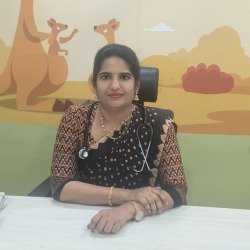 By Dr. Indu Sree Satti, Consultant Neonatologist and Pediatrician, Ankura Hospital for Women & Children, Vijayawada
By Dr. Indu Sree Satti, Consultant Neonatologist and Pediatrician, Ankura Hospital for Women & Children, Vijayawada
As the monsoon season looms over Vijayawada, India, it’s crucial to highlight the importance of flu vaccination in this bustling city. With its dense population and vibrant urban life, Vijayawada faces heightened health risks during the monsoon months. Recent data from local health authorities reveal a notable uptick in flu cases during this period, emphasizing the need for proactive measures.
Influenza, or the flu, occurs globally with an annual attack rate estimated at 5-10% in adults and 20-30% in children. Children, particularly those below 2 years, bear a higher burden of the flu. In developing countries like India, the incidence of the flu and acute lower respiratory tract infections is significantly higher. In India, the flu contributes to 5-10% of all acute respiratory infections (ARIs).
Flu vaccination serves as a cornerstone in preventing influenza viruses from wreaking havoc in communities. By getting vaccinated before the onset of the monsoon, individuals can significantly reduce their susceptibility to the flu and its potentially severe consequences. Health officials in Vijayawada have been ramping up efforts to promote flu vaccination, resulting in a marked increase in vaccination coverage. Recent figures from the Vijayawada Municipal Corporation (VMC) indicate a remarkable rise in flu vaccination coverage, with rates soaring by 25% over the past year to reach an impressive 70% among eligible residents.
The influenza virus can occur throughout the year but has distinct peaks in most geographical areas. In India, there are typically two peaks: one in winter (January to March) and a second post-monsoon (August to October). In Southern India, influenza peaks between October and November.
At Ankura Hospital for Women and Children, we recognize the pivotal role of flu vaccination in safeguarding the health of our community members in Vijayawada. Pregnant women, young children, and the elderly are particularly vulnerable to the flu’s impact, making vaccination efforts crucial in protecting these demographics. The quadrivalent flu vaccine, which protects against four strains of the influenza virus, has demonstrated 63% efficacy against moderate to severe flu and 50% efficacy against flu of any severity in children aged 6 months through 35 months.
The Advisory Committee on Vaccination Practices (CVIP) recommends flu vaccination for all children aged 6 months to 5 years, as well as individuals with chronic cardiac, pulmonary, or other health conditions. It is advised to get vaccinated 2-4 weeks prior to the onset of the flu season to ensure optimal protection.
Indian Academy of Pediatrics recommend yearly Flu vaccination to all children <5years preferably quadrivalent vaccine.
Minimum age for Flu vaccination is 6 months, 2 doses should be given with 4 weeks interval till 9 years and single dose after 9 years.
By ensuring widespread flu immunity, we not only reduce the burden on healthcare facilities but also foster stronger community resilience against infectious diseases.
In conclusion, as Vijayawada braces itself for the monsoon, prioritizing flu vaccination emerges as a critical public health strategy. By fostering a culture of vaccination and promoting awareness about its benefits, we can fortify our city against the seasonal flu and its associated complications. Let’s unite in our commitment to a healthier and more resilient Vijayawada this monsoon season.